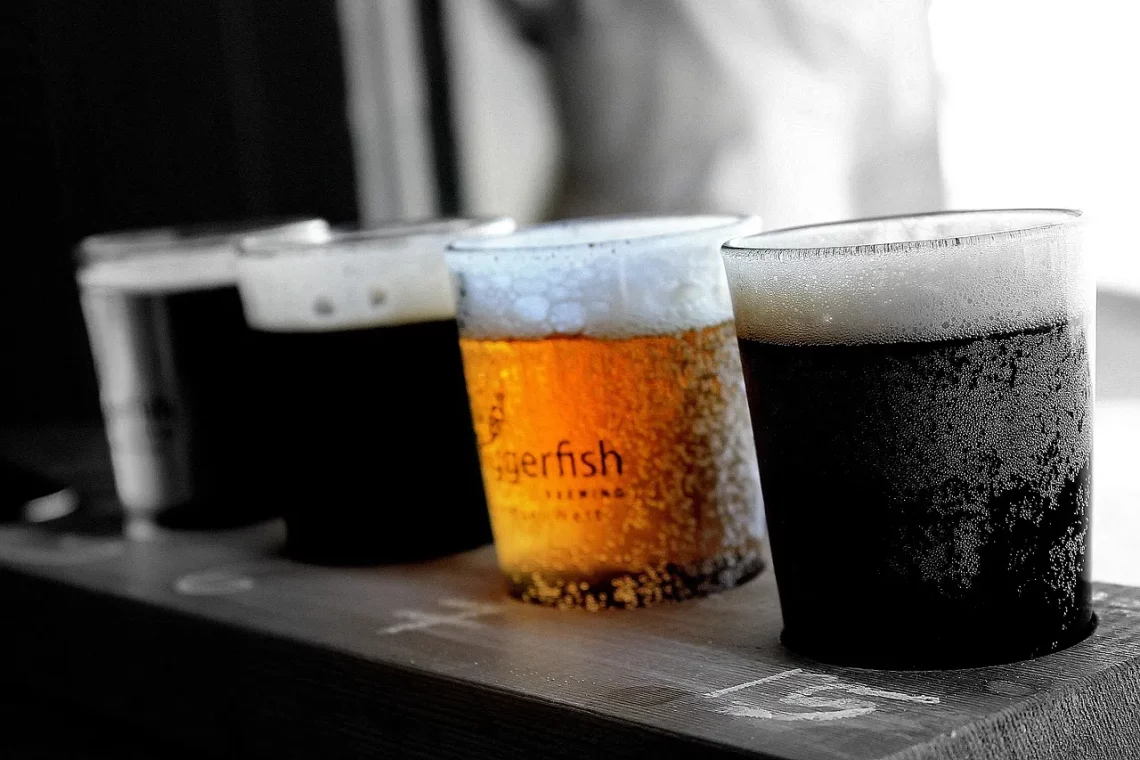
Exploring Heineken Zero: The Rise of Alcohol-Free Beer Options
In recent years, the beverage industry has witnessed a significant transformation, particularly in the realm of alcohol-free options. A growing number of consumers are seeking alternatives to traditional alcoholic drinks, whether for health reasons, lifestyle choices, or simply to enjoy a refreshing beverage without the effects of alcohol. Among these alternatives, Heineken Zero has emerged as a prominent player, capturing the attention of beer enthusiasts and casual drinkers alike.
This shift towards alcohol-free beer is not just a passing trend; it reflects broader societal changes regarding health consciousness, moderation, and inclusivity. As more people become aware of the potential downsides of alcohol consumption, the demand for quality non-alcoholic options continues to rise. Heineken Zero, with its commitment to delivering a full-flavored beer experience without the alcohol, stands at the forefront of this movement. The rise of alcohol-free beer options is reshaping how we think about social drinking, offering a viable choice for those who wish to partake in the communal aspects of drinking without the associated risks of alcohol.
As we delve deeper into the world of Heineken Zero and the burgeoning market of alcohol-free beers, it becomes clear that this is not merely a response to consumer demand but a reflection of evolving cultural attitudes towards drinking. This article explores the various aspects contributing to the growing popularity of alcohol-free beer, including its appeal, benefits, and the future of this segment in the beverage industry.
The Appeal of Alcohol-Free Beer
The allure of alcohol-free beer lies in its ability to provide the familiar taste and experience of traditional beer without the intoxicating effects. For many, the social rituals associated with beer drinking remain enjoyable, and Heineken Zero allows individuals to participate without compromising their lifestyle choices or health goals.
One of the primary reasons for the increasing popularity of alcohol-free beers is the rising awareness around health and wellness. Many consumers are now more health-conscious, seeking to reduce their alcohol intake due to various reasons, including weight management and overall well-being. Heineken Zero offers a low-calorie option that allows individuals to enjoy the flavors of a classic lager without the added calories that typically come with alcoholic beverages.
Additionally, the perception of alcohol-free beer has evolved. Once viewed as a less desirable alternative, brands like Heineken have worked hard to change this narrative. Through innovative brewing techniques and marketing strategies, Heineken Zero has positioned itself as a premium choice among alcohol-free options. The taste is often compared favorably to its alcoholic counterparts, making it an attractive choice for those who enjoy the beer flavor but wish to abstain from alcohol.
Furthermore, alcohol-free beer can also be a responsible choice for designated drivers and individuals who are pregnant or nursing. It enables them to engage in social settings without feeling isolated or left out. The ability to toast with a beer in hand, even if it’s non-alcoholic, fosters a sense of belonging and community, bridging the gap between drinkers and non-drinkers alike.
In summary, the appeal of alcohol-free beer like Heineken Zero extends beyond mere taste; it encompasses broader health trends, changing social dynamics, and a desire for inclusivity. This appeal is driving the market forward, creating more opportunities for consumers to enjoy a refreshing beverage without the consequences of alcohol.
The Health Benefits of Choosing Non-Alcoholic Options
Choosing alcohol-free beer presents several health advantages that contribute to its rising popularity. For individuals looking to maintain a balanced lifestyle or those who are health-conscious, Heineken Zero and similar products offer an appealing alternative.
One of the most notable benefits is the reduction in alcohol consumption. Alcohol is known to have various negative effects on health, including liver damage, increased risk of certain cancers, and addiction. By opting for a non-alcoholic beer, individuals can enjoy the social aspects of drinking while minimizing these health risks. This choice is especially relevant for those recovering from alcohol dependence or those who simply prefer to abstain from alcohol for personal or health-related reasons.
In addition to reducing the risks associated with alcohol, non-alcoholic beers often contain fewer calories than their alcoholic counterparts. For individuals watching their weight or managing their caloric intake, Heineken Zero provides a flavorful option without the extra calories that come from alcohol. This feature makes it an attractive choice for those who want to indulge in a beer without the guilt of calorie counting.
Moreover, alcohol-free beers often contain beneficial ingredients such as antioxidants. Beer, in general, contains compounds that can provide health benefits when consumed in moderation. Non-alcoholic versions retain many of these positive attributes without the downsides of alcohol. For instance, some studies suggest that moderate beer consumption can contribute to heart health due to its antioxidant properties.
Additionally, for those who engage in physical activities or sports, non-alcoholic beer can serve as a post-workout refreshment. The hydration benefits coupled with the carbohydrates can aid in recovery after exercise, making it a unique choice for athletes looking for a refreshing beverage that won’t hinder their performance or recovery.
It’s important to note, however, that while non-alcoholic beer can be a healthier choice, it is still essential to consume it in moderation. Just because a beverage is alcohol-free does not mean it should be consumed in excess. As with any dietary choice, balance is key to reaping the benefits while avoiding potential pitfalls.
In conclusion, the health benefits associated with alcohol-free options like Heineken Zero are significant. They provide a way for individuals to enjoy the taste of beer while prioritizing their health and well-being, making them an increasingly popular choice in today’s health-conscious society.
The Future of Alcohol-Free Beers
The future of alcohol-free beers appears bright, driven by consumer demand and innovation in brewing technologies. As more people embrace healthier lifestyles and seek alternatives to alcoholic beverages, brands like Heineken are likely to expand their offerings, catering to a diverse range of tastes and preferences.
One significant trend shaping the future of alcohol-free beer is the rise of craft breweries entering this space. With the craft beer movement gaining momentum, many small breweries are experimenting with non-alcoholic options, creating unique flavors and styles that appeal to a broader audience. This diversification can lead to an explosion of creativity in the alcohol-free segment, offering consumers a wider selection than ever before.
Additionally, advancements in brewing technology are enhancing the quality and taste of non-alcoholic beers. Techniques such as vacuum distillation and reverse osmosis allow brewers to create beers that closely mimic the flavor profiles of traditional ales and lagers while removing the alcohol content. These innovations are crucial for attracting consumers who may have previously dismissed non-alcoholic options due to taste concerns.
Moreover, the marketing strategies surrounding alcohol-free beers are evolving. Brands are focusing on lifestyle messaging that emphasizes inclusivity, health benefits, and social enjoyment. This approach is likely to further normalize the consumption of non-alcoholic beers in various settings, from casual gatherings to formal events, making them an integral part of social culture.
As the market for alcohol-free beverages continues to expand, partnerships and collaborations between brands may also become more common. By combining efforts, companies can create unique offerings that blend different flavors and styles, appealing to an even wider audience.
In conclusion, the future of alcohol-free beers like Heineken Zero is promising, marked by innovation, diversity, and a shift in consumer attitudes. As more individuals seek healthier, inclusive options, the alcohol-free segment is poised for continued growth, reshaping the beverage landscape for years to come.
In light of the information presented in this article, it is important to note that this content is not intended as medical advice. If you have any health concerns or conditions, please consult a qualified healthcare professional for guidance tailored to your specific situation.




